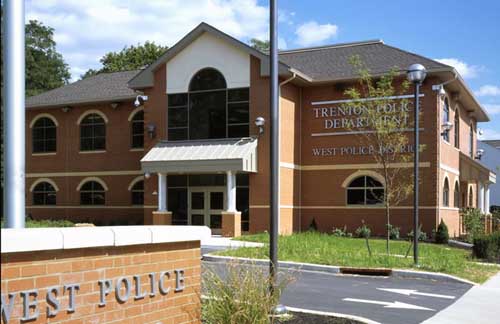The New Jersey Attorney General’s Office has targeted several unnamed officers from the Trenton Police Department. The State has sent “target” letters to officers suspected of using human growth hormone and/or anabolic steroids; they are being given the option of cooperating, facing a grand jury, or criminal indictment (“Trenton cops served notice that they’re targets of hormone probe,” August 12).
Several police sources, however, said that a handful of cops, some of them ranking officers, have recently received “target” letters asking for their cooperation in the case.
The investigation began with the steroid bust of Florida dentist Dr. Jeffrey Weiser who sold prescriptions for testosterone, human growth hormone (HGH), Deca Durabolin, Winstrol, Oxandrin, Nolvadex and Clomid to bodybuilders on the Internet for $50 per script per medication. Cops from the Trenton Police Department were allegedly clientele of Weiser’s “personal fitness consulting business.”
In 2005, Weiser pleaded guilty to the charges in federal court, and his sales records, seized in the investigation, led to the Trenton officers, according to published reports.
Steven Suarez, a steroid dealer who was busted in April 2008, is thought to be cooperating with authorities in the Trenton cop steroid scandal as well. Suarez pleaded guilty to cocaine and steroid-related drug charges last week (“Hamilton man cops a plea in narcotics case: Sources believe his arrest is tied to the Trenton police human growth hormone probe,” August 20).
The April arrest sent a worrisome ripple through the Trenton Police Department, where Suarez is known to be friendly with several police officers and has been a workout partner of some. Trenton also has a group of police officers who have been under investigation by authorities since 2006 for personal use of human growth hormone (HGH).
Many police sources believe Suarez’s arrest is tied to the Trenton police HGH probe in some fashion, and that Suarez may be cooperating with authorities.
Sources also suspect the timing of Suarez’s recent guilty plea is the reason some police officers under investigation received “target letters” earlier this month from the state Attorney General’s Office, which currently has the HGH case.
Some sources believe that the steroid/HGH investigation does not involve steroid or HGH possession or distribution charges; instead the inquiry involves insurance fraud since the officers used their employer provided insurance plan to pay for the HGH obtained from local pharmacies.
While the full extent of what’s in the target letters is unknown, sources said the documents include a provision seeking repayment of the money paid out from the health plans for the expensive drug.
Police sources familiar with the case have continually maintained that the way in which the drugs were obtained was on the up-and-up as far as the officers knew, and that they didn’t believe they were doing anything illegal.
They’ve said the officers came to receive the HGH after being issued prescriptions from a doctor they found publicly advertising his services, and their health insurance plans covered the drug acquisition.
It remains to be seen if criminal charges are filed against the cops in Trenton. But the crackdown on cops using steroids for medical purposes such as testosterone replacement therapy in addition to non-medical purposes is becoming more aggressive.
About the author
Millard writes about anabolic steroids and performance enhancing drugs and their use and impact in sport and society. He discusses the medical and non-medical uses of anabolic-androgenic steroids while advocating a harm reduction approach to steroid education.


Leave a Reply
You must be logged in to post a comment.